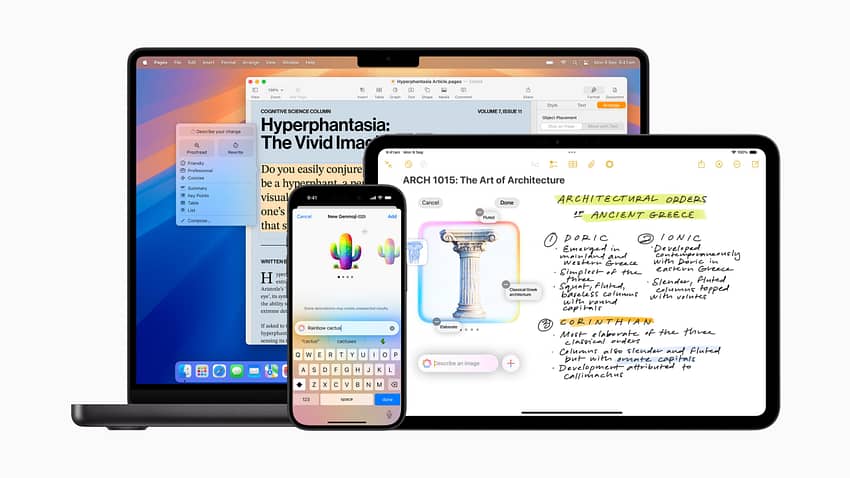Apple Intelligence has not been well received by the market. As someone that has been following and reporting on Apple for many years, the naysayers are all sounding familiar. Apple has rarely been first to market. Its goal is to be what it considers best in market. And Apple Intelligence is a further extension of that strategy.
The most common format of music on an iPod is stolen.
Steve Ballmer, former Microsoft CEO, 2004
Apple’s first iPods differed from competitors in one major way; they were much easier to use. Apple, using the iTunes software they acquired from SoundJam MP, simplified the iPod by making it a music playback device. Until then, MP3 players were both playback and music management devices.
Apple knew users would be loading music from their computers to the device so they shifted management functions to the computer where it would be easy and focussed on music playback and audio.
There’s no chance that the iPhone is going to get any significant market share. No chance. It’s a $500 subsidised item. They may make a lot of money. But if you actually take a look at the 1.3 billion phones that get sold, I’d prefer to have our software in 60% or 70% or 80% of them, than I would to have 2% or 3%, which is what Apple might get.
Steve Ballmer, former Microsoft CEO, 2007
The first iPhone showed Apple’s focus on the user experience in a different way. It was able to bring a good (but not best in market) touchscreen, new operating system (that lacked basic features like cut/copy/paste) and hardware (that lacked the keyboard and stylus most of the market thought was mandatory) to create a new user experience.
Apple did not have the first portable music player on the market. Nor did it have the first smartphone, tablet, laptop, graphical user interface, mouse or any number of other innovations that have taken the company to the level of success it sees today.
Where Apple has exceeded market expectations and become a leader is where it has made the user experience as seamless as the technology of the day allows.
And this is where it will excel with Apple Intelligence.
Apple Intelligence is becoming integrated into macOS, iPadOS and iOS in ways that make its use seamless. Make no mistake – it’s far from perfect. Botched news summaries, clunky email filtering and slow performance in some cases means it’s lagging the competition. But that will change.
When Apple Maps was first released it was awful. Today, it’s on par with Google Maps – the long acknowledged as the market leader. I see Apple Intelligence as being similar, although not nearly as bad as the early release of Apple Maps.
Apple’s model of leveraging on-device processing, that takes advantage of its custom silicon, and then offloading more complex queries to its now private servers, that utilise the same processing technology, enables it to maintain user privacy. For queries its models can’t handle, data is sent to ChatGPT, at no cost to the user, for processing.
You can bet that in a year or two, Apple will have developed its models to the level where the offload to ChatGPT will be rarely used.
This is why Apple will win. And I’m defining “winning” as being the most used AI tool. It might not be the most sophisticated but it will be the AI tool that is easiest to use because it will be deeply embedded in the user experience. I suspect that in a year or two, we’ll be using Apple Intelligence without realising it.
Just as we barely notice autocorrect when it fixes our typos, and don’t give a second thought to mapping software that intelligently routes us from place to place, Apple Intelligence will become a part of how we use our devices. And we won’t even notice.

Anthony is the founder of Australian Apple News. He is a long-time Apple user and former editor of Australian Macworld. He has contributed to many technology magazines and newspapers as well as appearing regularly on radio and occasionally on TV.

